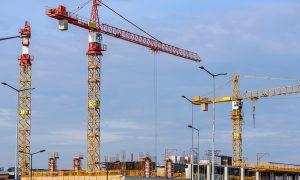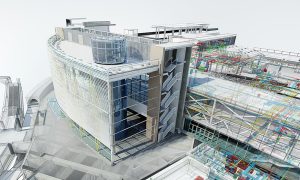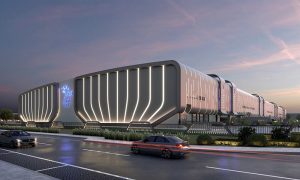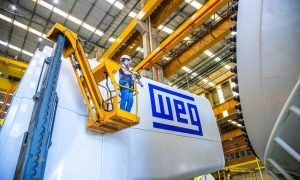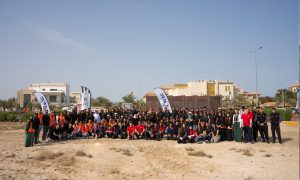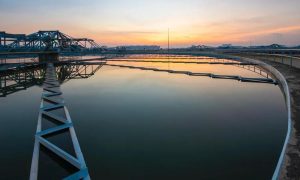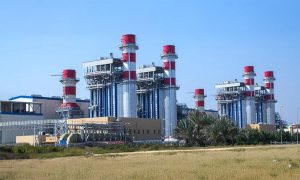FIFA World Cup 2018 stadiums built with Trimble technology
Tekla Structures BIM software used to construct venues with their own unique structural details in eight host cities

Eight of the 12 stadiums hosting the FIFA World Cup 2018 in Russia that kicks off today have been constructed using Tekla Structures software, said construciton software heavyweight Trimble.
Acoording to a statement from the Sunnyvale, California-based company, Tekla Structures is an advanced Building Information Modeling (BIM) tool, which allowed the designers, contractors and construction organisations behind the stadiums to complete high-quality work.
The stadiums built using Tekla Structures are in Moscow, Saint Petersburg, Saransk, Volgograd, Nizhny Novgorod, Samara, Sochi, and Kazan – and each stadium has its own unique, spectacular structural details, said Trimble.
Moscow’s Spartak Stadium will seat up to 45,000 spectators during the tournament. Thick-walled pipes were used in the construction, which made it possible to reduce metal consumption. As a result, the roof weighs a relatively light 8,500t. With Tekla’s 3D model files working together with automated production, the project flowed smoothly from the drawing phase to the manufacture phase, said Trimble.
The Saint Petersburg Stadium is a 67,000-seater designed by architect Kisho Kurokawa and will host seven matches. The stadium’s structural features include a roll-out field and a 286m-wide retractable roof. After 10 years of construction, the project was taken over by Kurganstalmost. Trimble said that by using Tekla Structures, they were able to identify potential collisions and avoid unnecessary work at the construction site, resulting in quick compliance with FIFA requirements. According to Kurganstalmost, the use of BIM technology was critical, especially given the tight schedule.
The oval-shaped Mordovia Arena, located in Saransk, will host four matches and seat up to 44,000 spectators. The base of the stadium is composed of 88 interlinking consoles 40m high with a span of 49m. Belenergomash, Mordovia Arena’s steel fabricator, also produced complex 60m metal structures with an accuracy of up to 10mm, and a large number of welded joints. With BIM technology, Belenergomash’s specialists were able to streamline their workflow and ensure productive communication among different divisions, said Trimble.
The Volgograd Arena, which will host four matches, seats 45,000 people. Triimble said it features a unique cable-stayed roof and openwork wicker-themed façade, whose technical complexity made it necessary for supply and construction to work closely to ensure optimal accuracy in both manufacturing and assembly. To manage such a difficult task, Tekla’s BIM technology integrated all available information about the facility’s construction into one information-packed 3D model. Data could be transferred straight from the model to machine, allowing more flexibility and more accuracy, as well as significantly reducing production times.
Trimble added that its Tekla Structures was also used for the construction of the Nizhny Novgorod Stadium, the Samara Arena, the Fisht Stadium, Sochi and the Kazan Arena, which will all host world cup matches.
